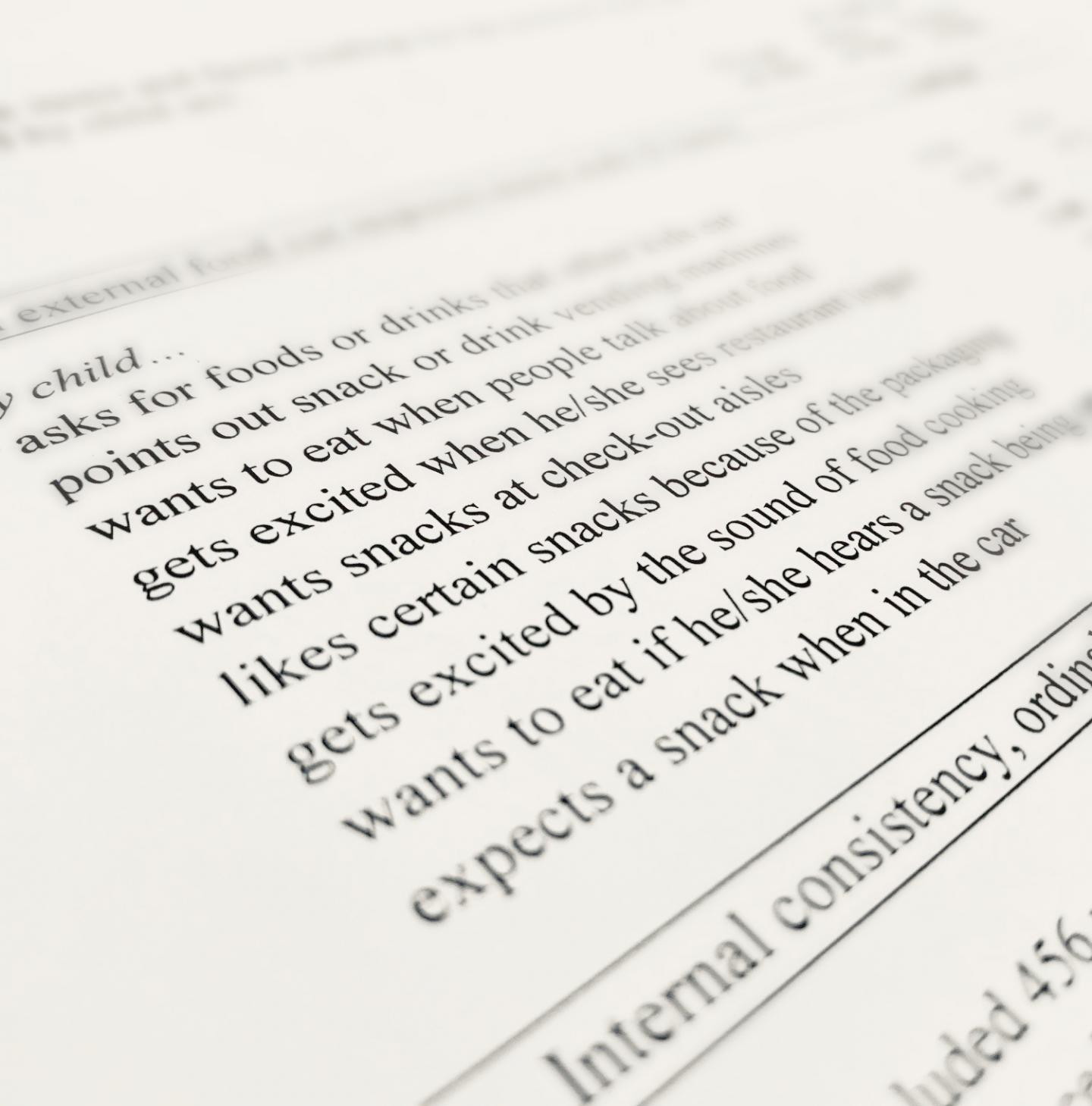Dartmouth researchers develop and validate a brief, parent-reported scale to measure external food cue responsiveness and conditioned eating behaviors for preschool-age children

Credit: Norris Cotton Cancer Center
LEBANON, NH – One in four preschool-age children in the U.S. have overweight or obesity, putting them at risk for multiple chronic health problems including cancer. Early and consistent exposure to such food cues may promote conditioned eating, where the cue itself becomes a signal to eat. Children may then learn to eat by exposure to external cues rather than listing to their internal, biological signals of hunger.
Psychometric scales for adults and children ages 7-12 have previously been created to measure responses to external food cues such as desire to eat when walking past a candy store or temptation when food is being prepared. However, to date, no scale exists that specifically addresses responsiveness to external cues, such as visual, environmental or social cues, in contemporary preschool-age children.
A Dartmouth research team led by Jennifer Emond, MS, PhD aimed to extend previous research and develop a brief, parent-reported scale to measure external food cue responsiveness for preschool-age children that could be employed easily in their natural environments. “A scale to specifically measure responsiveness to external foods is important to understand how aspects of the current obesogenic environment, including exposure to food marketing, may impact a young child’s obesity risk,” says Emond. Their study, “Measurement of external food cue responsiveness in preschool-age children: Preliminary evidence for the use of the external food cue responsiveness scale” is newly published in the journal, Appetite.
The study was conducted in two stages. Eight focus groups of parents of 2-5-year-old children informed an initial pool of 33 items to be included in an external food cue responsiveness scale for preschool-age children. Items included cues such as passing by restaurants, waiting in check-out aisles at grocery stores, seeing others eat, and hearing food wrappers. The items were phrased to enable parents to rate how well each behavior described their own child’s behaviors and were scored on a scale of “rarely” to “a lot.” These items were then distributed in an online survey to 456 parents recruited nationally via social media. Statistical analyses were applied and the list was reduced to the final nine items comprising the new External Food Cue Responsiveness Scale. Items include branded packaging, product placement, social influence and restaurant logos, which are all aspects of food marketing that impact young children’s eating behaviors yet have not been operationalized into an easy-to-administer scale.
Findings suggest that this novel scale effectively captures children’s behavioral responsiveness to external food cues and, in particular, cues related to food marketing. The team sought to validate the usefulness of this new scale under free-living conditions by correlating scores with an existing validated scale of food responsivity. As expected, external food cue responsiveness was positively associated with overeating behaviors. Using the common cued-snacking behavior of eating while watching TV, they also found that external food cue responsiveness was greater among children with, versus without, usual TV advertisement exposure.
For the next steps, the research team will assess the validity of the novel scale against laboratory measures of cued-eating in preschool-age children. “This line of research is important for identifying how aspects of a young child’s natural environment, including obesogenic features, may impact eating behaviors during this critical stage of development,” says Emond.
###
Jennifer Emond, PhD is a member of the Cancer Population Science research program at Dartmouth’s Norris Cotton Cancer Center and Assistant Professor in the Department of Biomedical Data Science Geisel School of Medicine. Her research interests include examining the effects of food marketing on the development of obesogenic eating behaviors during early childhood and the associations between dietary behaviors, media use and sleep on children’s obesity risk.
About Norris Cotton Cancer Center at Dartmouth-Hitchcock
Norris Cotton Cancer Center combines advanced cancer research at Dartmouth’s Geisel School of Medicine with patient-centered cancer care provided at Dartmouth-Hitchcock Medical Center in Lebanon, NH, at Dartmouth-Hitchcock regional locations in Manchester, Nashua and Keene, NH, and St. Johnsbury, VT, and at partner hospitals throughout New Hampshire and Vermont. It is one of 49 centers nationwide to earn the National Cancer Institute’s “Comprehensive Cancer Center” designation. Learn more about Norris Cotton Cancer Center research, programs, and clinical trials online at cancer.dartmouth.edu.
Media Contact
Jaime Peyton
[email protected]
Related Journal Article
http://dx.




